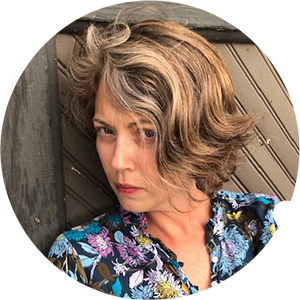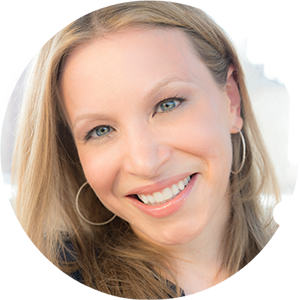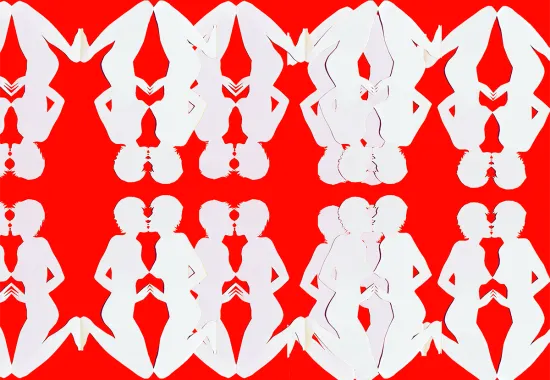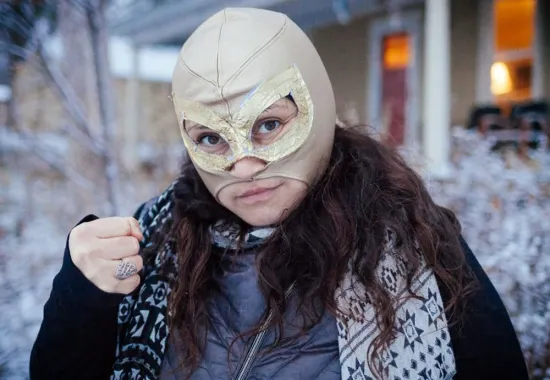Interviewing Priscilla Gilman, Author of "The Critic's Daughter: A Memoir"
“I lost my father for the first time when I was ten years old,” writes Priscilla Gilman in the introduction to The Critic’s Daughter (W. W. Norton, 2023). These words immediately resonated and haunted me for days. I have uttered the same words, but about my mother, and for slightly different reasons.
Having grown up on the upper west side of New York City during the 1970s in an apartment towering with alluring literary works, Priscilla Gilman worshiped her charming, adoring, and mercurial father, Richard Gilman, a writer and widely regarded as one of the greatest American theater critics of the second-half of the twentieth century. A Yale School of Drama professor (whose many students over his thirty-one years of teaching included Mark Linn-Baker, Henry Winkler, and Meryl Streep), Mr. Gilman was known as both warm and cerebral with a critical sharpness that could be irritable and humorous. The Critic’s Daughter examines not just Priscilla’s complicated relationship with her father, but also the marriage between Gilman and literary agent powerhouse, Lynn Nesbit (who went on to be a founding member of Janklow & Nesbit).
Writer, mother, and former professor of English literature at Yale University and Vassar College, Priscilla Gilman scrutinizes her complex father in five acts exploring the literary world, children of divorce, and more under the guise of memory, sprinkled with many of her father’s critical quotes.
Gilman peers at her father through incisive and empathetic eyes, but always with an undulating merit of love, if not hurt and confusion. It is at once, “an attempt at exorcism, a plea to be haunted,” she writes. She mentions Guess jeans with zippers at the ankles, but being embarrassed by her father’s frugality at McDonald’s, she made diary entries on ‘what not to do’ when she and her sister spent time at her father’s apartment post-divorce, as well as handling the ‘adult information’ her mother disclosed. While these vignettes may sound devastating, it is Gilman’s strong sense of resilience and her own love for her family that provide the reader hope in the ties people form with one another, as well as our own human persistence.
As a writer excavating my own parents’ marriage—and subsequent downfall—I became infused with the intricacies of time and memory on the craft of memoir as well the play of divorce—and parenting—on society.
Please join me in conversation with Priscilla Gilman.
LESLIE LINDSAY: Priscilla, I am so delighted to connect! As I read The Critic’s Daughter, I felt an immediate kinship between our experiences. The fact that we were both ten years old when we lost a significant parent—your father to divorce and his mercurial moods, and my mother also to divorce and severe mental illness. We both coveted Guess jeans, a love for literature, and are the older, effervescent, responsible sibling. It would be easy to not write about these things. Yet there’s a calling, a haunting, if you will. Can you speak more about your impetus to writing this memoir?
PRISCILLA GILMAN: Leslie, your warm embrace of my story and your ability to identify so many points of connection, some major, some tiny yet significant, between us, truly move me! Guess jeans with ankle zippers forever! Yes, early on in the book, I write about the urgency that impelled me onward as I felt not only my father’s life, work, and legacy but also his New York, his intellectual and artistic compatriots, and that era in our culture receding into the distance. I wanted to resurrect the man, the city, and the culture he existed in. And I knew that I needed, finally, to confront the grief about losing my father that had shadowed me since I first lost him at ten years old, when my mother ended their marriage. I needed to reckon with his meaning to me. I needed to finally acknowledge how my father shaped me, mostly for the good, but also in some ways that proved harmful or damaging for me.
LL: Like you, trauma has played a large role in my personal life, but professional life as well. You studied the role of trauma in literature, whereas my work as a former child/adolescent psychiatric R.N. taught me about the bleak before and after a traumatic event, how individuals who have experienced such jarring discord often try to mend the gulf. That’s what I feel The Critic’s Daughter is doing, it’s dwelling in that in-between space. Would you agree?
PG: Oh my goodness, Leslie, I would so agree! That is a beautiful way of putting it. It’s one of the most difficult things to do—to inhabit the in-between, to reside in that space without rushing to fix or solve or resolve, to accept or even to embrace a lack of closure.
LL: One of the things I think you do well is delve into the interiority of your characters—who, in actuality, are real people. Writing memoir is a complex undertaking. Real people become characters. There’s a great deal of excavation, assessing, re-assessing, processing, the balance of action/exposition, front-story/back-story, character, voice, setting, tone, dialogue, structure, imagery…it’s a wonder we do it at all! From a craft perspective, can you talk a little about how you were able to insinuate yourself into the lives of your characters so well?
PG: Thank you so much, Leslie! I wanted very much to bring the people in my life to complicated, three-dimensional life for readers. I took great care in choosing anecdotes, lines of dialogue, and stories that would economically and vividly convey the essence of these people to my readers. I paid great attention to the physical features and attributes I chose to describe them with, the details I shared about their taste in clothing, movies, books, and art, the way they moved and spoke and inhabited space.
LL: Your mother is still living, but I see this book as a way to bring your [young] parents back to life. Did you ever consider writing this book while your father was still living? In your acknowledgments, you mention your mother’s support for this book, stating that she took off her mother and ex-wife hat and put on her agent hat, encouraging you to write The Critic’s Daughter. Can you give a peek into that experience, please?
PG: No, I never considered writing the book while my father was alive, but that’s mainly because I wasn’t a writer for mainstream audiences when my father was still alive; I was an academic. The fall he died was just a few months after my last semester as an English professor and a few months into my working as a literary agent, and it was another two and a half years before my grad school friend turned agent sold a book proposal called The Anti-Romantic Child that turned into my first memoir, published in 2011 by Harper. As far as my mother goes, she initially didn’t see a book about my father as having any commercial viability—she said “well, he was famous once, but who cares about Richard Gilman now?” But when I explained that the book would be a universal story about being the daughter of a complicated parent, about the effects of divorce, about an era, a culture, art and criticism, she got it and encouraged me to do it. That isn’t to say that it wasn’t tough for her as I probed her about her marriage to my father and as she had to revisit some painful stuff when I interviewed her a few times as I worked on the book.
LL: I’m also very curious about resilience. I think it’s something we both share. Poise under pressure, maybe. You frequently soothed the edges of a fraught relationship, not just between you and your father, but also that between your mother and father, your sister and father. You’re often portrayed as competent, unflappable, and responsible. Was this something innate, or learned? A little of both?
PG: I was blessed with a naturally buoyant, happy temperament and an ability to stay calm under pressure. These are lucky accidents of personality that have served me well. But as I say in the book, the role of peacemaker, cheerful one, soother of hurt feelings and smoother of ruffled feathers does eventually take a toll. I learned to subordinate my own emotional needs to those of everyone else and to suppress my feelings of sadness, confusion, frustration, and anxiety. At some point in our lives, we need to address unmet emotional needs and learn how to productively express darker feelings!
LL: Shifting gears, I am also intrigued by your experience raising boys, both struggled with special needs, which became a labor of love for you. You wrote The Anti-Romantic Child in response to this period of your life. I’m curious how your childhood helped prepare you for this aspect of being a mother?
PG: All of the poise under pressure, the ability to identify potential issues and quickly brainstorm ways of approaching them, the acceptance of a human being in all his or her messy humanity, with strengths and flaws, virtues and challenges, helped me enormously in parenting two children with special needs. My father’s embrace of children and childhood per se, not just his own three individual children, was passed down to me and buoyed me through tough times helping my children during especially difficult periods in their lives. My older son is autistic, and my younger son is dyslexic; both spent many years in special education. Individuated and differentiated education is extremely valuable not just for kids with recognized special needs but for all students!
LL: Thank you so much, Priscilla, for writing such a moving and fraught story. It has sort of given me permission to write about my mother, and will stay with me for a long time. I’d like to end with a question that is probably, most impossible to fully answer, but what do you think your father would say about you and the book now?
PG: I would hope that he would be proud of me and that he’d admire the book for its honesty, its blend of rigor and tenderness, and the surpassing yet clear-sighted love that pervades every page. He’d love what I call the 40 Characters In Search of my Father that flit through the pages of the book. Finally, he’d be happy that the New York Giants and his New York Times piece about me and our favorite football team play such a major role in the book.
Recommended
An Interview with Ren Cedar Fuller
“Tracing the shape of real bodies”: An Interview with Frances Cannon
Becoming Visible







